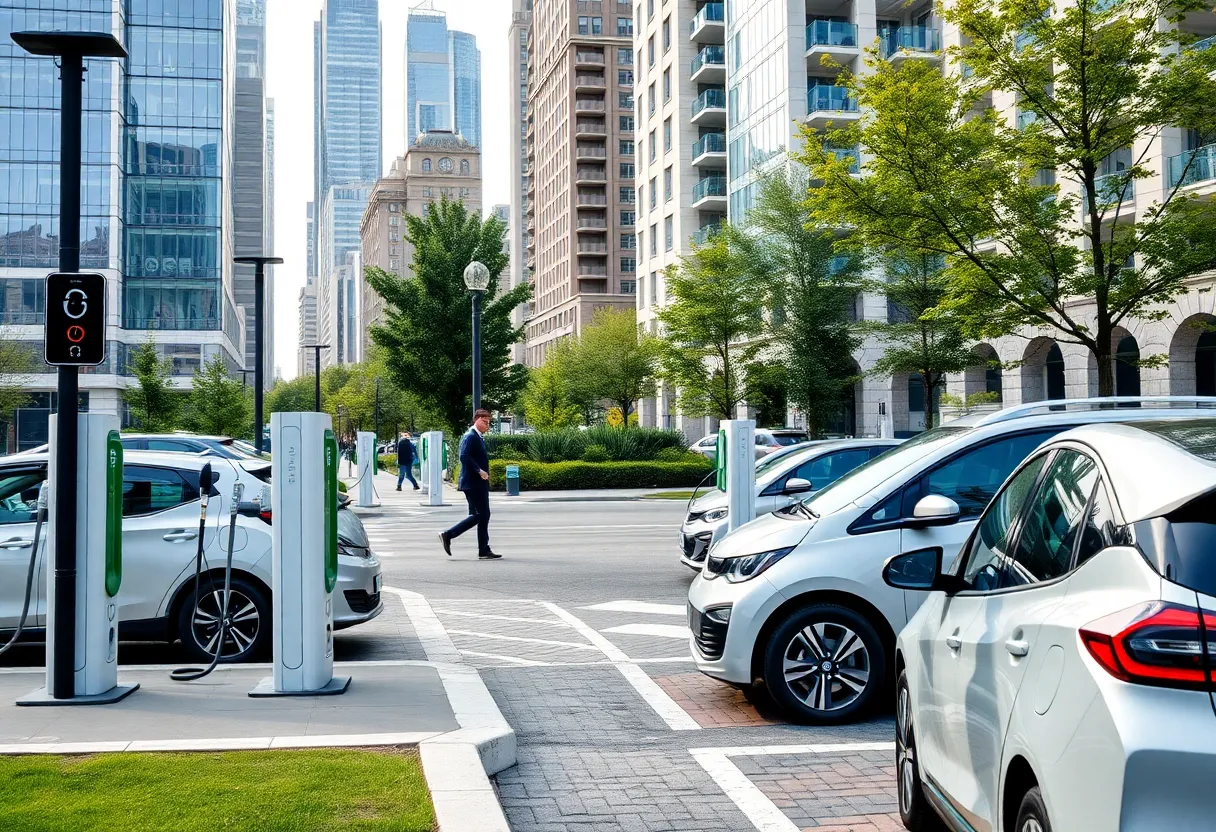News Summary
New York State’s plans to phase out gas-powered vehicles by 2035 are under threat following a recent U.S. House vote against California’s emission regulations. This decision could hamper the adoption of electric vehicles in the state, raising concerns about job losses in the automotive sector and the future of electric vehicle infrastructure. Despite these challenges, Governor Kathy Hochul maintains a commitment to advancing electric vehicle initiatives, including significant incentive programs to promote EV ownership and infrastructure development.
New York State’s ambitious electric vehicle mandate is facing uncertainty following a recent vote in the U.S. House of Representatives aimed at blocking California’s strict auto emission regulations. New York’s mandate seeks to eliminate the sale of gas-powered vehicles by 2035, relying on California’s leadership in environmental policies.
On Thursday, the House passed a measure that prevents California from enforcing its rules that would require all cars and trucks to be free of fossil fuel emissions by the same year. Since New York has adopted similar standards based on California’s framework, the House vote poses a significant challenge to the state’s goals. This legislative move has raised concerns among various stakeholders about the future of electric vehicle (EV) adoption in New York.
U.S. Representative Nick Langworthy voiced support for the House’s decision, interpreting it as a reversal of the Environmental Protection Agency’s (EPA) position on California’s emissions ban. Langworthy characterized the federal push toward electric vehicles as impractical and risky, highlighting potential adverse effects on New York’s automotive industry, including job losses and financial strain on dealerships.
In the wake of this legislative development, Langworthy had previously led a bipartisan initiative urging Governor Kathy Hochul to reevaluate New York’s electric vehicle sales mandate. In his view, there is a risk of accumulating unsold electric vehicle inventory, which could lead to layoffs among workers in the automotive sector.
Langworthy has labeled the House’s vote a notable victory for consumers, dealerships, and automotive workers, urging the Senate to swiftly advance the legislation and facilitate its signing by the President.
In response to the burgeoning interest in electric vehicles, New York State has introduced various programs aimed at enhancing EV accessibility. Earlier this year, the state announced a $30 million incentive program to promote electric vehicle purchases and leases, offering rebates directly at the point of sale. The Drive Clean Rebate program currently supports more than 60 new electric vehicle models and provides additional charging incentives for multifamily homes and workplaces.
Governor Kathy Hochul recently reiterated New York’s commitment to being at the forefront of electric vehicle adoption, focusing on providing budget-friendly options for consumers while continuing to develop infrastructure for convenient charging solutions across the state.
Additionally, the City of Buffalo is taking action to modernize its fleet by acquiring four electric vehicles, which include two Chevy Equinox EVs and two Ford F150 Lightning EVs. The city spent $202,974 on these vehicles, with funding from the New York State Energy Research and Development Authority (NYSERDA), all while aiming to reduce its carbon footprint.
In a related development, Ymer Technology, a manufacturer specializing in electric vehicle components, has inaugurated its new U.S. headquarters in Buffalo Grove. The establishment of this facility has been supported by a $5.7 million state grant, underscoring Illinois’s growing electric vehicle supply chain, which encompasses over 1,000 companies. Illinois has invested more than $45 billion in infrastructure modernization through 2025.
Moreover, Illinois has dedicated over $180 million since 2021 towards renewable energy workforce training via the Climate and Equitable Jobs Act. Ymer Technology’s project is anticipated to create more than 30 local jobs, contributing to Illinois’s efforts to ascend as a leader in the clean energy economy.
As the automotive landscape shifts towards electrification, the outcome of the congressional vote may ultimately determine the trajectory of electric vehicle sales and infrastructure development in New York and potentially across the nation. The implications for manufacturers, workers, and consumers alike remain to be seen as further legislative actions unfold.
Deeper Dive: News & Info About This Topic
- Buffalo News: Biden Administration Standardizes EV Charging
- WKBW: City of Buffalo Acquires Electric Vehicles
- Daily Herald: EV Component Manufacturer Opens Headquarters
- WNY Papers: UB Rolls Out Largest EV Fleet Charging Lot
- WKBW: Buffalo Auto Show Features Range of Vehicles
- Wikipedia: Electric Vehicle
- Google Search: Electric Vehicles
- Encyclopedia Britannica: Electric Vehicle

Author: Anaheim Staff Writer
The Anaheim Staff Writer represents the experienced team at HEREAnaheim.com, your go-to source for actionable local news and information in Anaheim, Orange County, and beyond. Specializing in "news you can use," we cover essential topics like product reviews for personal and business needs, local business directories, politics, real estate trends, neighborhood insights, and state news affecting the area—with deep expertise drawn from years of dedicated reporting and strong community input, including local press releases and business updates. We deliver top reporting on high-value events such as major conventions at the Anaheim Convention Center, including NAMM and VidCon, exciting games at Angel Stadium and Honda Center, and developments at Disneyland Resort Our coverage extends to key organizations like the Anaheim Chamber of Commerce and Visit Anaheim, plus leading businesses in hospitality, entertainment, and innovation that power the local economy As part of the broader HERE network, including HERECostaMesa.com, HEREHuntingtonBeach.com, HERESantaAna.com, and HERELosAngeles.com, we provide comprehensive, credible insights into Southern California's dynamic landscape.




